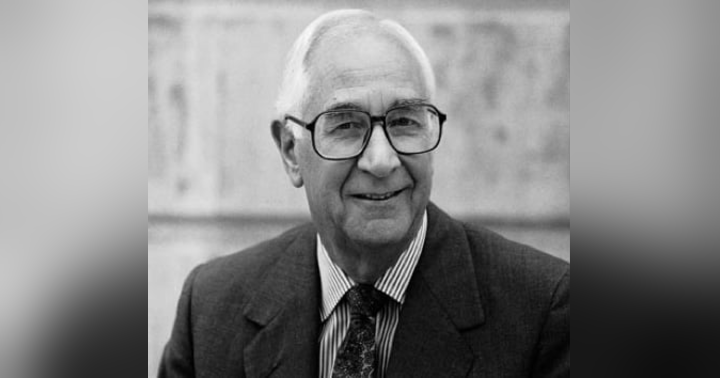Max De Pree
Episode 41: Max De Pree, former chief executive officer of Herman Miller. Max led Herman Miller to become one the most successful office furniture companies in the world. Learn more about the his servant leadership style, how leadership is an art and the influential...
Episode 41: Max De Pree, former chief executive officer of Herman Miller. Max led Herman Miller to become one the most successful office furniture companies in the world. Learn more about the his servant leadership style, how leadership is an art and the influential mentors in his career.
Follow Leaders:
Email us: theleaderspod@gmail.com
Transcript: Episode 41: Max De Pree A Nurse's Wisdom: The Foundation of De Pree's Leadership Max De Pree's granddaughter's premature birth and subsequent survival highlighted the importance of valuing individual gifts. A nurse's simple yet profound statement, "Every day I get the chance to use my gifts to help someone else," deeply impacted De Pree's leadership philosophy. This experience underscored his belief that organizations should function similarly, enabling employees to utilize their unique talents and passions. Max De Pree: A Leadership Legacy Max De Pree, son of Herman Miller founder D.J. De Pree, served as CEO from 1980 to 1987. His leadership style, heavily influenced by his book Leadership Is an Art, emphasized servant leadership, inclusive capitalism, and open communication. He championed the "silver parachute," providing benefits to terminated employees based on years of service. De Pree's contributions extended beyond Herman Miller. He established the Max De Pree Center for Leadership at Fuller Theological Seminary and received the International Leadership Association Lifetime Achievement Award in 2012. Key Principles of De Pree's Leadership De Pree's leadership philosophy centered on several key principles: Inclusive Corporation: A workplace where all voices are heard. Servant Leadership: "The first responsibility of a leader is to define reality. The last is to say thank you. In between, the leader is a servant." Integrity: "Integrity...is a principle that serves society, not simply a utilitarian concept subject to the whim of a single person." Open Communication: "Air on the side of overcommunication." Empowerment: Liberating people to do what's required effectively and humanely. Listening: Attending to the needs and aspirations of followers. Leadership as an Art: Cultivating Future Leaders De Pree viewed leadership as an art, focusing on polishing and liberating the gifts of individuals within an organization. He stressed the importance of identifying, developing, and nurturing future leaders, emphasizing traits like integrity, diversity appreciation, competence, and servant leadership. He also highlighted the need for leaders to maintain momentum and ensure organizational effectiveness. Applying Principles at Herman Miller De Pree's goal for Herman Miller was to be seen as "a gift to the spirit," fostering a culture of interdependence, mutual interest, and joy. He emphasized honest communication, accountability, and the importance of understanding individual gifts and utilizing them effectively. He also discussed the importance of healthy relationships within the organization, emphasizing that contracts are only a small part of a complete relationship. Leadership Jazz: Adaptability and Authenticity In his book Leadership Jazz, De Pree used the analogy of a jazz band to illustrate organizational leadership, highlighting the importance of individual contributions within a cohesive group. He emphasized the need for leaders to balance the needs of employees and the organization, prepare for the future, and embrace change. "A leader protects creative persons from the bureaucracy and legalism so ensconced in our organizations." Challenges and Lessons Learned De Pree navigated challenges inherent in family businesses, including family dynamics, bureaucracy, and economic downturns. He emphasized the importance of clear communication, shared purpose, humility, and prioritizing people over profits, even during difficult times. Mentorship and Influence De Pree's leadership was shaped by mentors Carl Frost, David Hubbard, and Peter Drucker. He emphasized the importance of mentoring, stating, "Being a mentor is both challenging and rewarding." Each mentor contributed significantly to his leadership philosophy, emphasizing participative management, servant leadership, and the importance of people within organizations. Conclusion Max De Pree's leadership philosophy offers valuable insights for leaders today. His emphasis on servant leadership, inclusive practices, and the importance of individual contributions continues to resonate, making him a significant figure in the world of leadership thought.











